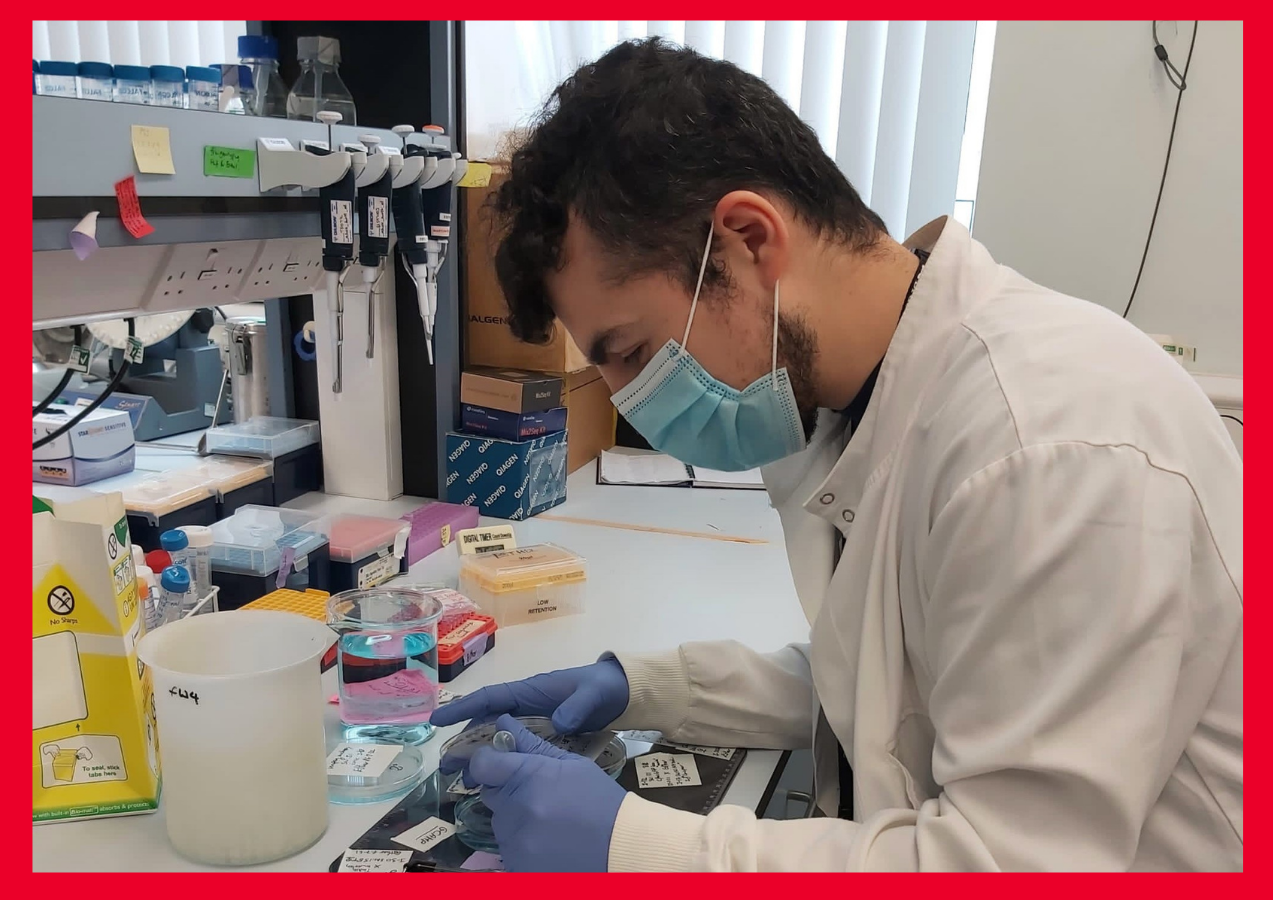Why did you want to become a researcher?
I’ve been passionate about science since I was a kid growing up in Chile. I’ve always been very curious!
When I was 15, I decided that I wanted to become a scientist. I studied Biochemical Engineering at university and then I worked in a zebrafish lab. I loved asking research questions and then testing them with experiments.
What is your project doing?
We know that some people have better scarring than others. But we don’t know why. Our project is using a new approach to identify the unknown genes that are involved in scarring.
To do this, two groups of researchers are working closely together to build a ‘gene discovery pipeline’. First, Dr Sam Neaves analyses the data from population studies and finds genes that appear to be linked with reduced or increased scarring in groups of people. And then, I test whether these genes play a role in wound healing using zebrafish.
Our project will help people with scarring because researchers can turn any promising discoveries into potential new treatments or ways to improve the diagnosis and monitoring of scarring.
What’s a typical day in your lab?
I start my day with a coffee at my desk where I plan my experiments. Right now, I’m making fish with mutations in certain genes that may influence scarring.
About half of my time is spent in the lab where I’m using amazing molecular biology tools to edit genes. For the rest of my day, I’m working in our fish facility. This is where I microinject the edited genes into one-cell embryos to create ‘transgenic’ and ‘knockout’ zebrafish.
I also read lots of journals! Our work is linked to other experiments across the world, so it’s important to keep on top of the latest scientific developments.
What’s been the most exciting breakthrough in scar free research?
Four years ago, Dr Valerie Horsley’s team at the Yale School of Medicine made a discovery that had big implications for scar free research.
Her lab compared groups of cells in the skin wounds of young and old mice. They did this because older mice are more prone to developing scars than younger mice.
The researchers found that the differences in the wounds were elicited by macrophages – a special kind of white blood cell. This suggests that macrophages may be one of the causes of scarring.

